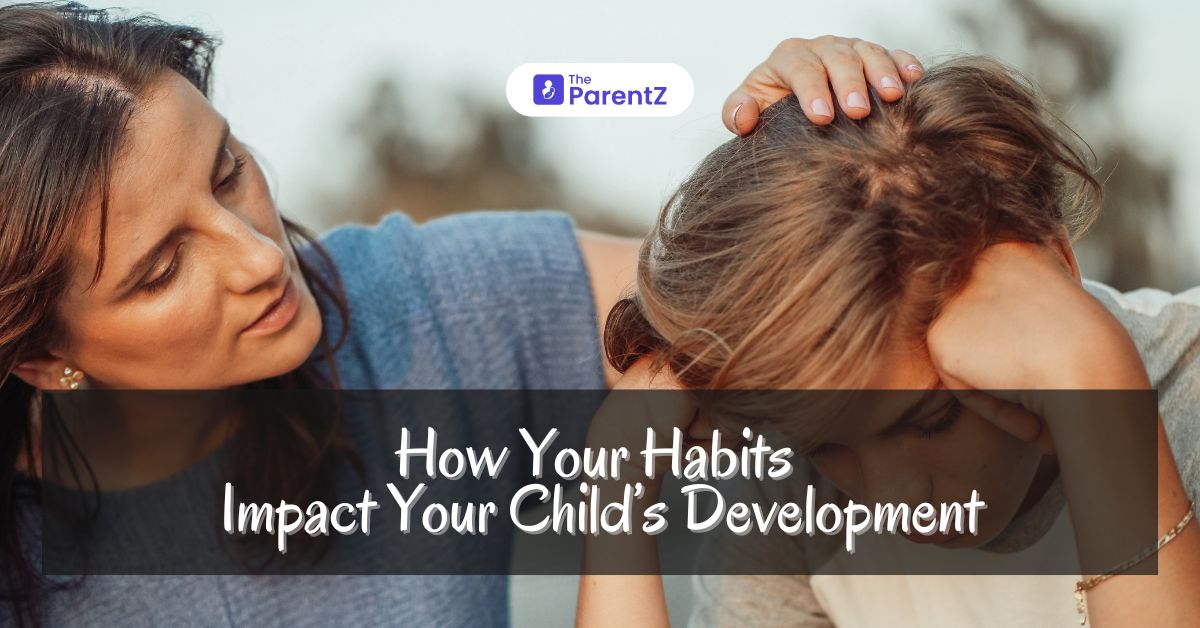Parenting is one of the most significant influences on a child’s development. In today’s fast-paced, technology-driven world, the habits parents cultivate profoundly shape their children’s behavior and worldview. From managing screen time to demonstrating stress management, every action sets a precedent.
Understanding how parental habits influence children can help foster positive growth and development. This article explores the intricate ways in which parental habits impact children, providing insights and actionable information for nurturing a healthy family environment.
The Science of Habit Formation in Children
Observational Learning
Children learn primarily through observation, a concept known as observational learning or social learning theory. This theory, developed by psychologist Albert Bandura, emphasizes that children imitate the behaviors of those around them, especially their parents. This imitation is not limited to overt actions but extends to attitudes, emotions, and coping mechanisms.
Neuroplasticity and Early Development
During early childhood, the brain is highly plastic, meaning it can easily form new neural connections. This neuroplasticity makes early years crucial for habit formation. The behaviors and routines children observe and participate in can become deeply ingrained patterns that influence their lifelong habits and attitudes.
Positive Parental Habits and Their Benefits
Consistent Routines
Consistent routines provide children with a sense of security and predictability. Regular meal times, bedtime routines, and study schedules help children understand what to expect, reducing anxiety and promoting a stable environment. This stability supports better emotional regulation and academic performance.
Healthy Lifestyle Choices
When parents prioritize healthy eating, regular exercise, and sufficient sleep, they set a positive example for their children. These habits contribute to physical well-being and instill a lifelong appreciation for health and fitness. Children who grow up in health-conscious households are less likely to develop obesity and other lifestyle-related health issues.
Positive Communication
Effective communication within the family fosters emotional intelligence and social skills. Parents who model active listening, empathy, and respectful dialogue teach their children how to express themselves constructively and build strong interpersonal relationships. This skill set is crucial for success in both personal and professional life.
Negative Parental Habits and Their Consequences
Inconsistent Discipline
Inconsistent discipline can lead to confusion and insecurity in children. If the consequences for behavior are unpredictable, children may struggle to understand boundaries and develop behavioral problems. Consistency in discipline helps children learn accountability and the importance of following rules.
Poor Stress Management
Parents who cope with stress through negative behaviors such as yelling, substance abuse, or withdrawal can inadvertently teach these coping mechanisms to their children. Effective stress management techniques, like mindfulness, exercise, or seeking social support, provide healthier models for children to emulate.
Excessive Screen Time
Parents who frequently use screens for entertainment or distraction can influence their children to adopt similar habits. Excessive screen time can negatively impact a child’s physical health, sleep patterns, and academic performance. Encouraging activities like reading, outdoor play, and creative hobbies fosters healthier development.
The Modern-Day Challenges for Parents
Balancing Work and Family Life
Today’s parents often juggle demanding careers with family responsibilities. This balancing act can lead to stress and less quality time with children. Demonstrating effective time management and prioritizing family time can set a positive example for children, teaching them the importance of balance.
Managing Digital Distractions
In an era dominated by digital devices, parents’ use of technology significantly impacts their children. If parents are constantly on their phones or laptops, children may feel neglected and may also develop similar habits. Setting boundaries for technology use and creating device-free family time can foster better communication and connection.
Addressing Mental Health
Mental health awareness has increased, but many parents still struggle with stress, anxiety, and depression. Addressing mental health openly and seeking professional help when needed not only benefits the parent but also normalizes mental health care for children. This teaches them that it’s okay to seek help and take care of their mental well-being.
Strategies for Cultivating Positive Parental Habits
Reflect on Personal Habits
Self-awareness is the first step toward change. Reflect on your habits and consider how they might be influencing your child. Identifying areas for improvement can help you model more positive behaviors.
Engage in Shared Activities
Participating in activities together, such as family meals, exercise, or reading, reinforces positive habits. Shared activities not only strengthen family bonds but also provide opportunities for children to learn through direct experience.
Prioritize Self-Care
Taking care of your own physical and emotional health is crucial. When parents are well-rested, nourished, and emotionally balanced, they are better equipped to care for their children and model healthy behaviors.
The Long-Term Impact of Parental Habits
Emotional Resilience
Children who observe and learn healthy coping mechanisms from their parents are more likely to develop emotional resilience. This resilience helps them navigate challenges and setbacks throughout life, contributing to overall mental health.
Academic and Social Success
Positive parental habits, such as consistent routines and effective communication, support academic success and social competence. Children who grow up in structured and communicative environments are better prepared for the demands of school and social interactions.
Lifelong Health and Well-Being
The habits children learn from their parents often persist into adulthood. By modeling healthy lifestyle choices and positive coping strategies, parents can significantly influence their children’s long-term health and well-being.
Conclusion
Parental habits play a critical role in shaping a child’s development. From emotional resilience to academic success, the behaviors children observe and imitate from their parents have far-reaching impacts. By fostering positive habits and being mindful of negative influences, parents can create a nurturing environment that supports their children’s growth and prepares them for a healthy and successful future. Understanding the profound impact of your habits is the first step toward intentional and impactful parenting





Be the first one to comment on this story.